whats the answer to i have 6 eggs
It'due south that onetime riddle that's sparked many arguments through the ages: was it the chicken or the egg that came first? It'southward such a tricky question because you demand a chicken to lay an egg, but chickens come up from eggs, leaving us with an intractable circle of clucky, feathery life that apparently has no articulate starting point.
Thankfully, there'due south no need to go on brooding over this forever. This is a riddle nosotros can unscramble with the tools of science—more specifically, the principles of evolutionary biology.
Let'south get cracking.
The start eggs
Eggs are found throughout the animal kingdom. Technically speaking, an egg is simply the membrane-leap vessel inside which an embryo tin can grow and develop until it can survive on its own.
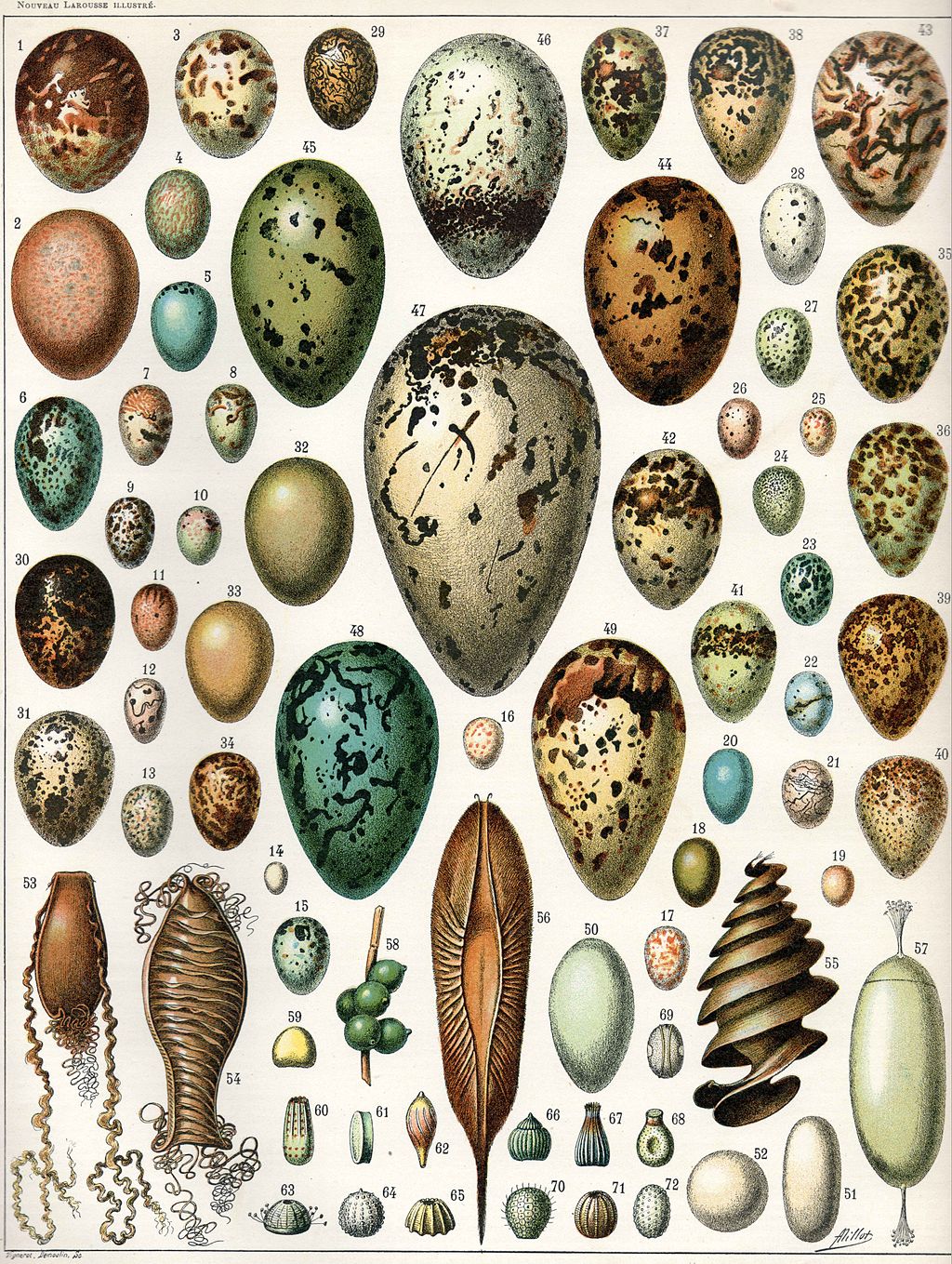
But let's focus on the blazon of bird'southward egg we recognise today. These first came on the scene with the evolution of the first amniotes many millions of years ago. Prior to their arrival, most animals relied on water for reproduction, laying their eggs in ponds and other moist environments so that the eggs didn't dry out.
At some point, a different kind of egg began to evolve, which had 3 actress membranes inside: the chorion, amnion and allantois. Each membrane has a slightly dissimilar part simply the add-on of all these actress layers provided a conveniently enclosed, all-in-one life support organization: an embryo can accept in stored nutrients, shop excess waste material products and respire (breathe) without the need of an external aquatic environment. The extra fluids encased in the amnion, plus the tough outer shell, provide extra protection too.
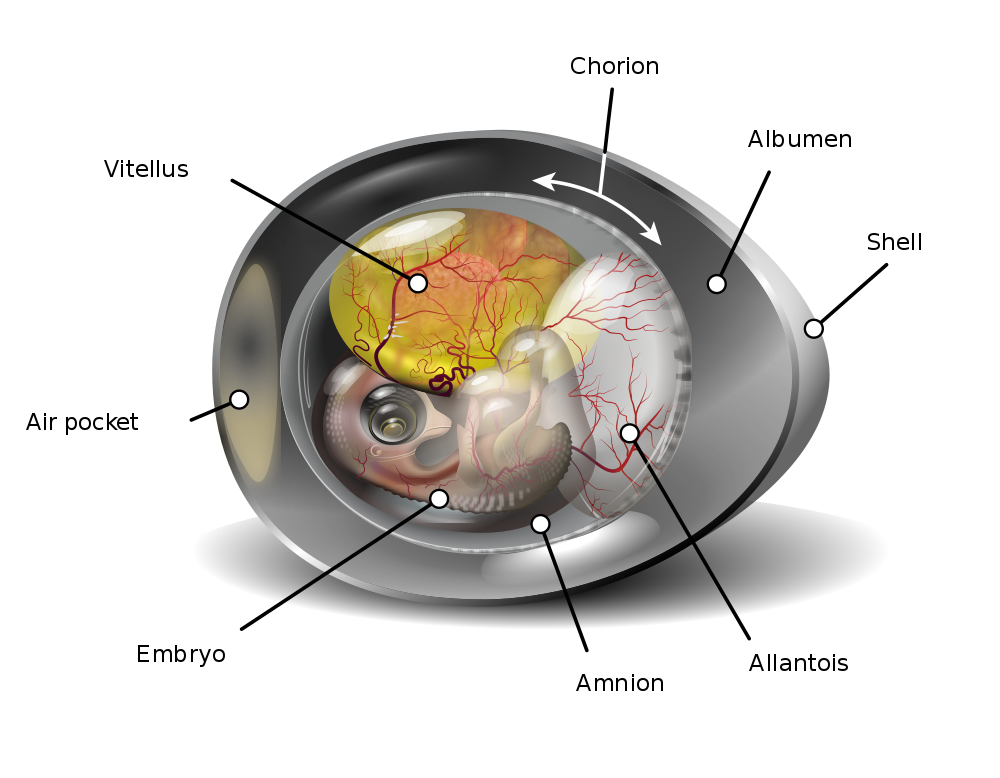
Amniotic eggs were a big deal. They opened up a whole new earth of opportunities for country-based egg-laying locations, and the actress membranes paved the way for bigger (and mostly better) eggs.
Nosotros're even so not certain of exactly when this happened, largely because eggy membranes don't make very good fossils, leaving scientists with no clear record of when, or how, amniotic eggs developed. Our best guess is that the last mutual ancestor of both tetrapods (four-limbed animals with a backbone) and the amniotes (four-limbed animals with a backbone that lay eggs with all those extra layers) lived around 370-340 million years agone, though some sources put the first amniote species as living closer to 312 1000000 years agone. Today's mammals, reptiles and birds are all descendants of the offset amniotes.
(This leaves united states with another eggsellent question: which came first, the amniote or the amniotic egg? Simply let's just stick with chickens for at present.)
The outset chickens
The very first chicken in being would have been the effect of a genetic mutation (or mutations) taking place in a zygote produced past 2 about-chickens (or proto-chickens). This ways 2 proto-chickens mated, combining their Deoxyribonucleic acid together to course the very first cell of the very first chicken. Somewhere along the line, genetic mutations occurred in that very first jail cell, and those mutations copied themselves into every other body cell equally the chicken embryo grew. The result? The showtime true chicken.
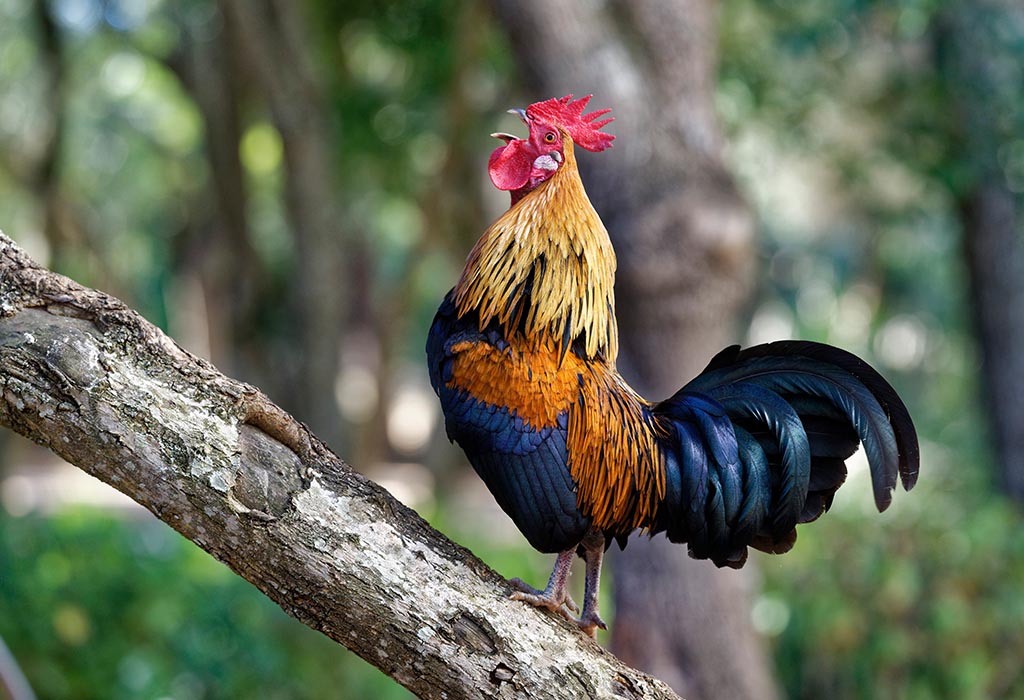
Then who were the likely parents of this kickoff One True Chicken? The red junglefowl (Gallus gallus) is native to a range of due south-eastern Asian countries including India, southern China, Indonesia, Malaysia, Singapore and Republic of indonesia. It'due south thought that the ruby junglefowl was domesticated by humans in Asia and went on to be spread around the world as the less-aggressive and prolific egg-layers that nosotros know and dear today (Gallus gallus domesticus).
Archaeological show suggests that the cherry junglefowl was first domesticated some ten,000 years agone, although Deoxyribonucleic acid analysis and mathematical simulations propose that the domestic chicken actually diverged from junglefowl much earlier (an estimated 58,000 years ago). There'southward also evidence to advise that the domestic chicken's origins may be slightly more complicated: the genes for the yellow colour seen on the legs of many chooks could have come from the greyness junglefowl (Gallus sonneratii), not the reddish, pointing to some hybridisation between species somewhere along the mode.
Back to our original question: with amniotic eggs showing upwardly roughly 340 1000000 or so years ago, and the outset chickens evolving at around 58 thousand years ago at the earliest, it'southward a safe bet to say the egg came first.
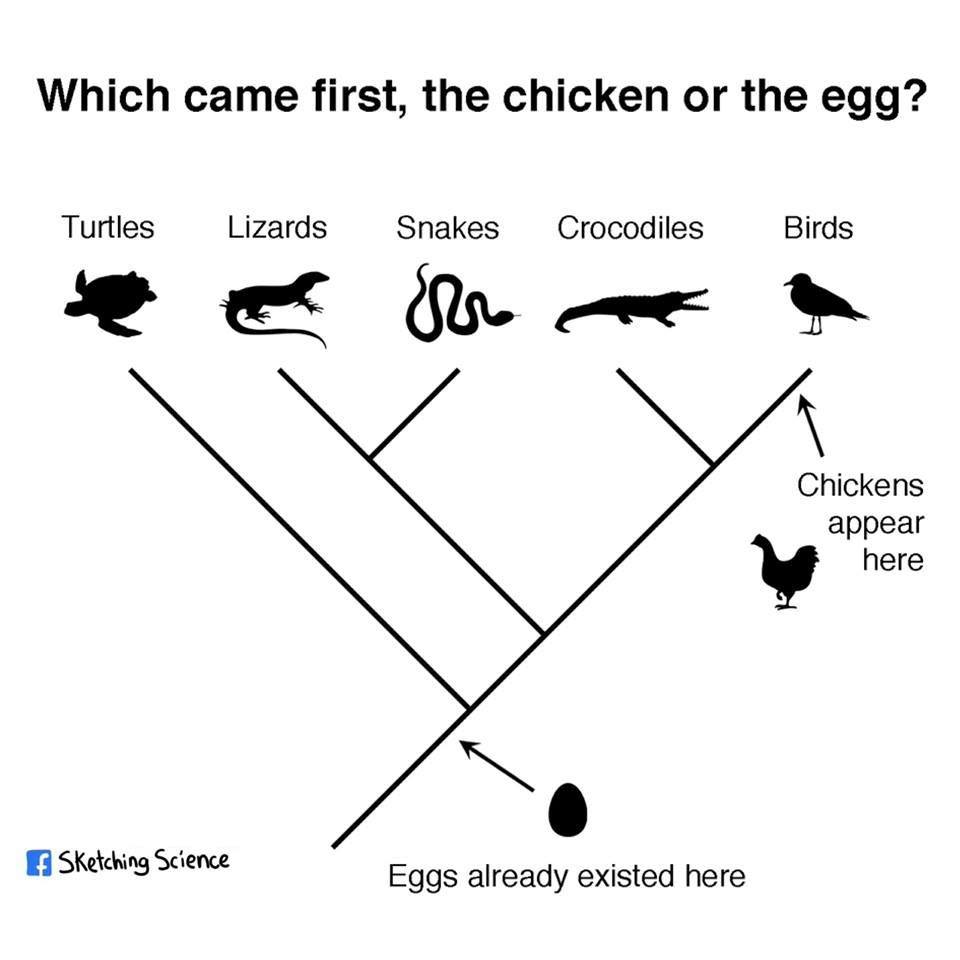
The outset chicken eggs
But wait—weren't there some scientists who claimed that, in fact, the craven came first?
This claim came from some researchers studying how chicken eggshells form. Eggshell is mostly made from calcium carbonate (CaCO₃). Hens get their supply of calcium for eggshell production from dietary sources (calcium-rich seafood shells, such as oyster or prawn shells, are a popular snack for lawn hens for this reason).
To form a shell, the calcium needs to be deposited in the course of CaCO₃ crystals, and hens rely on specific proteins that enable this process. One such protein, called ovocleidin-17 (or OC-17 for short), is only plant in the ovary of a chicken, leading to the suggestion that the chicken must take come up earlier the chicken egg, since without OC-17, in that location can be no chicken egg formation. (Interestingly, it seems that this protein is responsible for speeding upward the charge per unit of eggshell formation, enabling hens to build an egg from scratch and lay it within a 24-hour timeframe.)
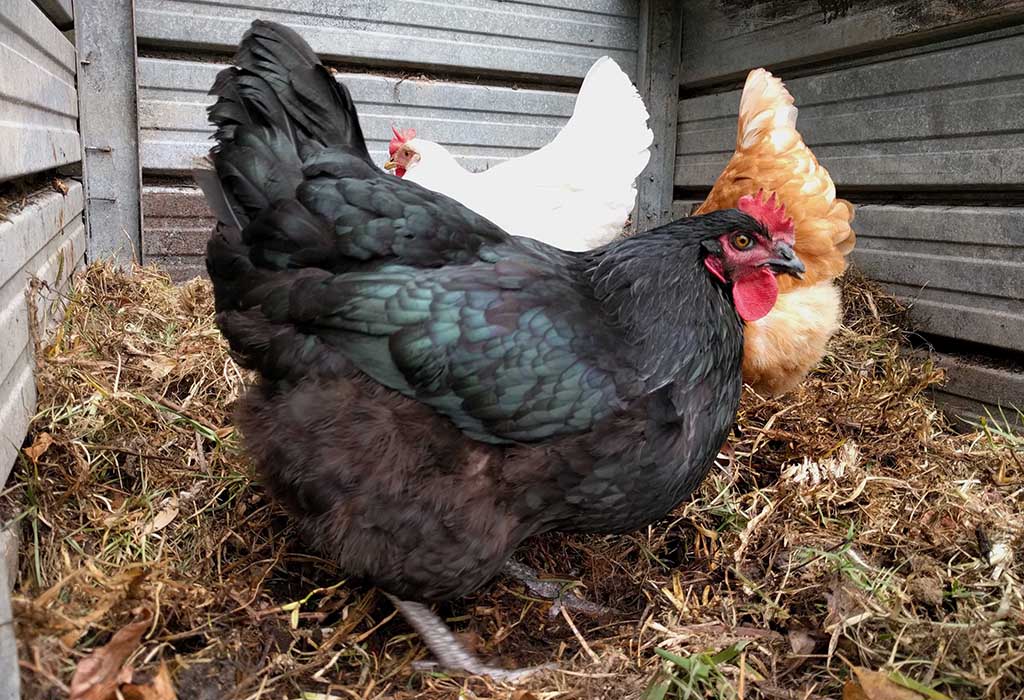
Then, can nosotros lay this age-old conundrum to rest? Or are scientists and philosophers withal scrambling to find an answer?
At the stop of the day, the question is something of a fake dichotomy. Eggs certainly came before chickens, only chicken eggs did not—you tin't have one without the other. All the same, if we absolutely had to pick a side, based on the evolutionary evidence, we're on Team Egg.
Source: https://www.science.org.au/curious/earth-environment/which-came-first-chicken-or-egg
Post a Comment for "whats the answer to i have 6 eggs"